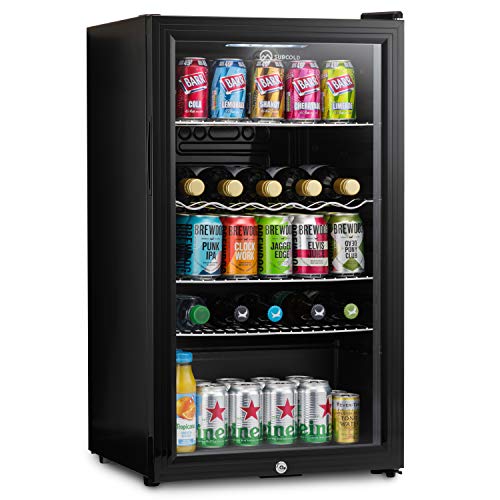10 Meetups On Drink Fridges You Should Attend
Commercial Drink Fridges: The Essential Guide for Businesses
In the competitive landscape of the food and beverage market, preserving the quality and ease of access of drinks is critical for organization success. Commercial drink fridges play a vital function in this aspect, ensuring that both perishable and non-perishable beverages are kept effectively, marketed appealingly, and quickly available to consumers. This article offers an in-depth take a look at commercial drink fridges, their types, features, and benefits, while attending to frequently asked concerns to help entrepreneur in making notified decisions.
Table of Contents
- Introduction to Commercial Drink Fridges
- Types of Commercial Drink Fridges
- 2.1. Glass Door Refrigerators
- 2.2. Undercounter Refrigerators
- 2.3. Countertop Fridges
- 2.4. Beverage Dispensers
- Key Features of Commercial Drink Fridges
- Advantages of Using Commercial Drink Fridges
- Frequently asked questions
- Conclusion
Introduction to Commercial Drink Fridges
Commercial drink fridges are specialized refrigeration units developed to store and display a range of beverages, including soft drinks, juices, beer, wine, and more. Unlike domestic refrigerators, these units are built to hold up against the extensive needs of commercial environments, where they require to keep products at optimal cooling temperatures while optimizing visibility and accessibility for clients.
Types of Commercial Drink Fridges
There are various commercial drink fridges offered on the market, each accommodating particular requirements and environments. Here are a few of the most common types:
2.1. Glass Door Refrigerators
- Description: These fridges include big glass doors that provide exposure for customers while keeping the drinks cold.
- Suitable Use: Perfect for corner store, cafes, and dining establishments that desire to showcase their beverage offerings.
2.2. Undercounter Refrigerators
- Description: Designed to fit under counter areas, these fridges are compact yet efficient.
- Suitable Use: Great for bars and restaurants with restricted area; they enable easy access to drinks without occupying floor area.
2.3. Countertop Fridges
- Description: Smaller systems that sit on counter tops, permitting for fast access to drinks.
- Perfect Use: Suitable for cafes and coffeehouse where personnel requirement quick access to drinks for consumers.
2.4. Beverage Dispensers
- Description: These systems dispense drinks like soft drinks, juices, or iced tea straight, frequently equipped with several taps.
- Perfect Use: Common in fast-food dining establishments and events requiring high-volume beverage service.
Key Features of Commercial Drink Fridges
When considering a commercial drink fridge, several essential functions ought to be considered:
- Temperature Control: Efficient cooling systems maintain optimal temperature ranges, typically between 33 ° F to 40 ° F( 1 ° C to 4 ° C), to guarantee beverage
- freshness. Energy Efficiency: Many designs are created with environment-friendly technologies, lowering energy usage and operating costs.
- Interior Lighting: LED lighting enhances presence, making it easy for customers to see the offered items.
- Shelving Options: Adjustable shelving enables flexible organization of drinks, accommodating various bottle sizes and types.
- Security Features: Lockable doors offer defense against theft, which is especially essential in retail environments.
Advantages of Using Commercial Drink Fridges
Investing in a commercial drink fridge provides several benefits that enhance organization operations:
- Improved Sales: Effective display and accessibility to drinks increase impulse purchases and general sales.
- Quality Preservation: Proper refrigeration ensures that drinks maintain their flavor and freshness, which is necessary for consumer fulfillment.
- Brand name Visibility: Transparent glass doors display your product range, boosting branding and marketing efforts.
- Area Efficiency: Many designs are developed for optimum area usage in busy commercial settings.
Function
Benefit
Temperature level Control
Keeps drinks fresh and enticing
Energy Efficiency
Lowers electrical power costs and promotes sustainability
Interior Lighting
Attracts consumers and helps in item selection
Adjustable Shelving
Optimizes storage based upon stock requires
Security Features
Safeguards against theft
FAQs
Q1: How do I select the best size of drink fridge for my company?
Selecting the ideal size depends on your available area, the volume of beverages you prepare to stock, and consumer traffic. Measure your designated location and consider designs that fit those measurements while meeting your storage needs.
Q2: Are commercial drink fridges energy-efficient?
Lots of modern commercial drink fridges are developed with energy-saving innovation and insulation to minimize energy usage. It's suggested to look for the ENERGY STAR label for optimal performance.
Q3: How frequently should I preserve my fridge?
Routine maintenance is crucial for the durability of your commercial drink fridge. An excellent guideline is to clean it each to three months. Additional checks on temperature level settings and door seals must be carried out routinely.
Q4: What temperature level should my drink fridge be set at?
A lot of beverage refrigeration ought to preserve a temperature between 33 ° F and 40 ° F (1 ° C to 4 ° C) to ensure drinks are cold but not frozen.
Q5: Can I utilize a property fridge for commercial purposes?
While property fridges might operate in a pinch, they are not developed for the heavy needs of commercial settings. For optimal efficiency and energy effectiveness, it's best to buy devices developed for commercial usage.
Conclusion
In conclusion, commercial drink fridges are a vital investment for any company that sells drinks. With numerous types and functions offered, comprehending the particular requirements of your business will help in picking the ideal design. The benefits of enhanced sales, quality preservation, and improved exposure can substantially add to a service's success. As the industry continues to progress, having the best equipment makes sure that businesses can meet customer expectations while growing in a competitive marketplace.
